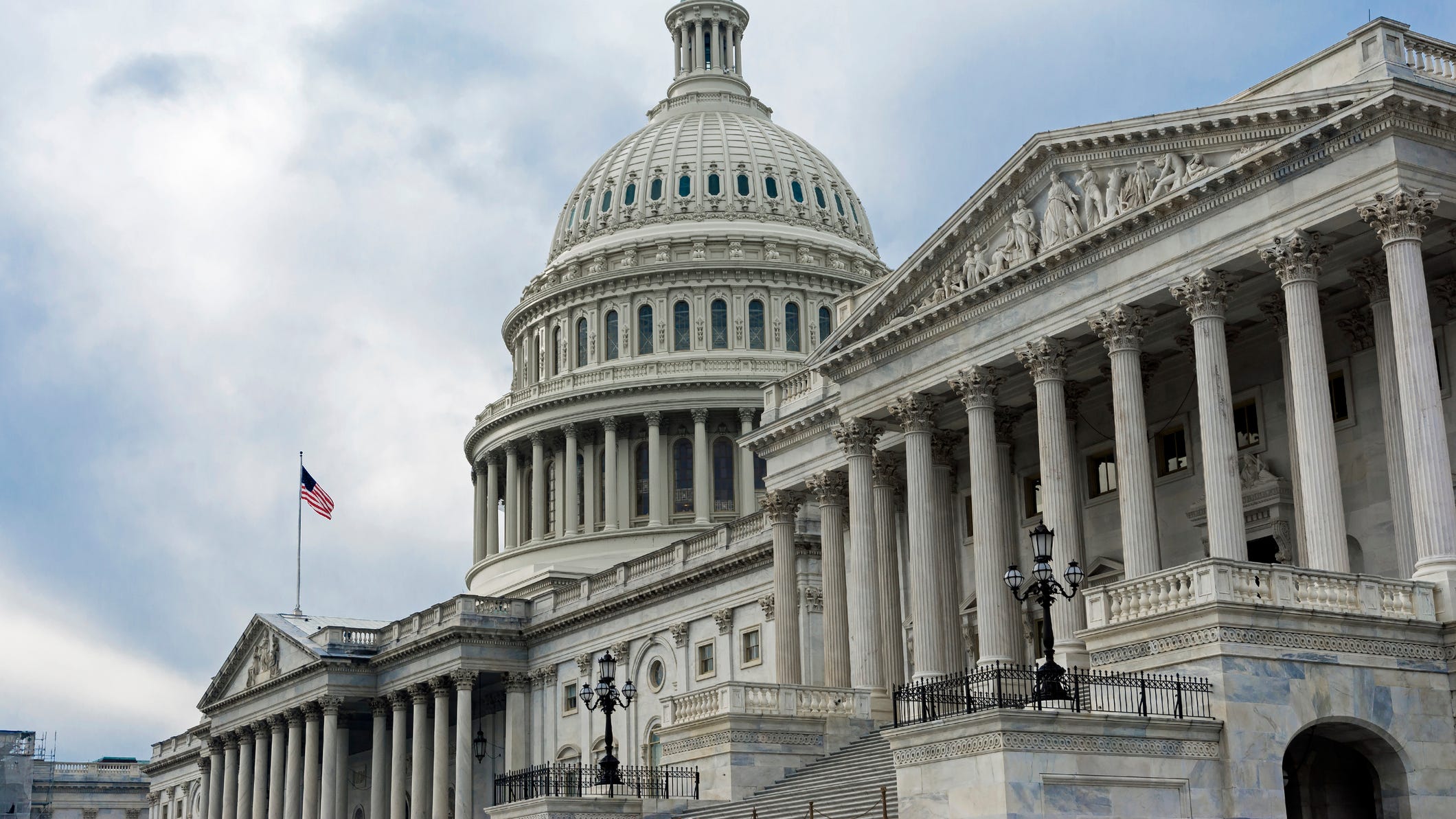Republicans are debating SALT tax breaks that are bad policy, good voter bribes | Opinion
Republicans are currently arguing over the SALT tax deductions cap that is horrible fiscal policy but probably needed to keep voters.

Bills often do the opposite of what they say. In this case, President Donald Trump’s so-called “big beautiful bill” that Republicans are working to get through Congress is actually chock-full of ugly fiscal policies that will harm America.
While much of the coverage has been about cuts to programs, one of the less-noticed provisions that has recently started to gain attention is the State and Local Tax (SALT) deductions.
The cap is a key sticking point in negotiations among a small group of congressional Republicans who were threatening to hold out support for the GOP budget. House Speaker Mike Johnson, though, has reportedly struck a deal with the small group of Republicans for a raise in the cap to $40,000 even if other conservatives are hesitant to vote for a deal with the SALT provisions in it.
These federal tax deductions are bad policy in practice, but might be good politics for the GOP.
What is SALT, and why are Republicans fighting over it?
First, what is SALT?
The SALT offers an itemized federal tax deduction that allows people to subtract the amount of money they pay in state and local taxes from their federal tax burden, up to a certain point.
The current SALT cap is $10,000, meaning that if somebody's local income tax burden is below that amount, they can subtract their entire state and local tax from their federal tax burden. If it exceeds that amount, they are allowed a $10,000 deduction.
Republicans are currently fighting over whether to raise the cap on SALT deductions as part of the “one big beautiful bill” that Trump and Johnson have promised. Swing district Republicans are demanding a raise in the cap to ease their constituencies' tax burdens.
Meanwhile, Trump is frustrated over this sticking point for his keynote legislation package, and is losing patience with the holdouts.
State and Local tax deductions are bad conservative policy
The SALT deduction cap should be $0. People should not be able to deduct their state and local tax burdens from their federal taxable income.
It's probably strange to hear a conservative like me argue against reducing people’s tax burden, but this is a unique case. The SALT cap is not a tax cut for all Americans, but rather a system that allows taxpayers to short the federal government in favor of their home states.
We should not reward people who make the poor decision of living in blue states with high tax burdens. If people don’t like paying high state taxes, they should move or be willing to pay them in a certain place.
Prior to the cap’s introduction in 2017, the average SALT deduction was around $13,000, meaning that the majority of people’s complete deductions came in at below the $10,000 mark. Raising the SALT cap even higher is a benefit to wealthy Americans, not the typical voter.
The overwhelming majority of people who benefit from the SALT cap being raised are wealthy, coastal residents of high-income tax states.
Trump's 2017 tax package is often accused of only benefiting the rich, even though taxpayers in almost every bracket have their burdens reduced. This time around, the Republican plan includes more working-class policies, such as no tax on tips and overtime. So, it is surprising that the GOP is giving in to a plan with SALT that overwhelmingly benefits wealthy individuals in high-tax blue states.
It's also not at all clear that America can afford this tax break. The “big beautiful bill” is estimated to add $3.3 trillion to the deficit over the next decade, meaning that cutting federal revenues further is fiscally irresponsible.
Many of these same blue states complain that they send more money out in federal taxes than they receive within their state, but they should not expect that burden to be reimbursed through SALT, adding to the federal deficit.
Raising the cap on SALT deductions might be good politics for the GOP
While I disagree with the policy proposal, it might be a good political move for the GOP.
Many of the toughest upcoming House re-election battles are in predominantly blue states. The representatives in these districts are the ones most adamantly fighting for a raise in the SALT cap.
The most vocal of these is Mike Lawler, a New York Republican from a swing district who is particularly fearful of those wealthy coastal liberals I mentioned earlier. Lawler has been holding out his vote, essentially looking for Johnson to bribe him for it by giving New York state residents a massive tax break.
However, that bribe may be worth it for the GOP. Republicans are shaping up to be in a tough battle for the House of Representatives in the 2026 midterm elections, and seats like Lawler’s could mean the majority.
While raising the SALT cap may be ill-advised from a policy perspective, it could be worth it for Republicans in the midterm elections to invest in swing seats now.
Dace Potas is an opinion columnist for Paste BN and a graduate of DePaul University with a degree in political science.